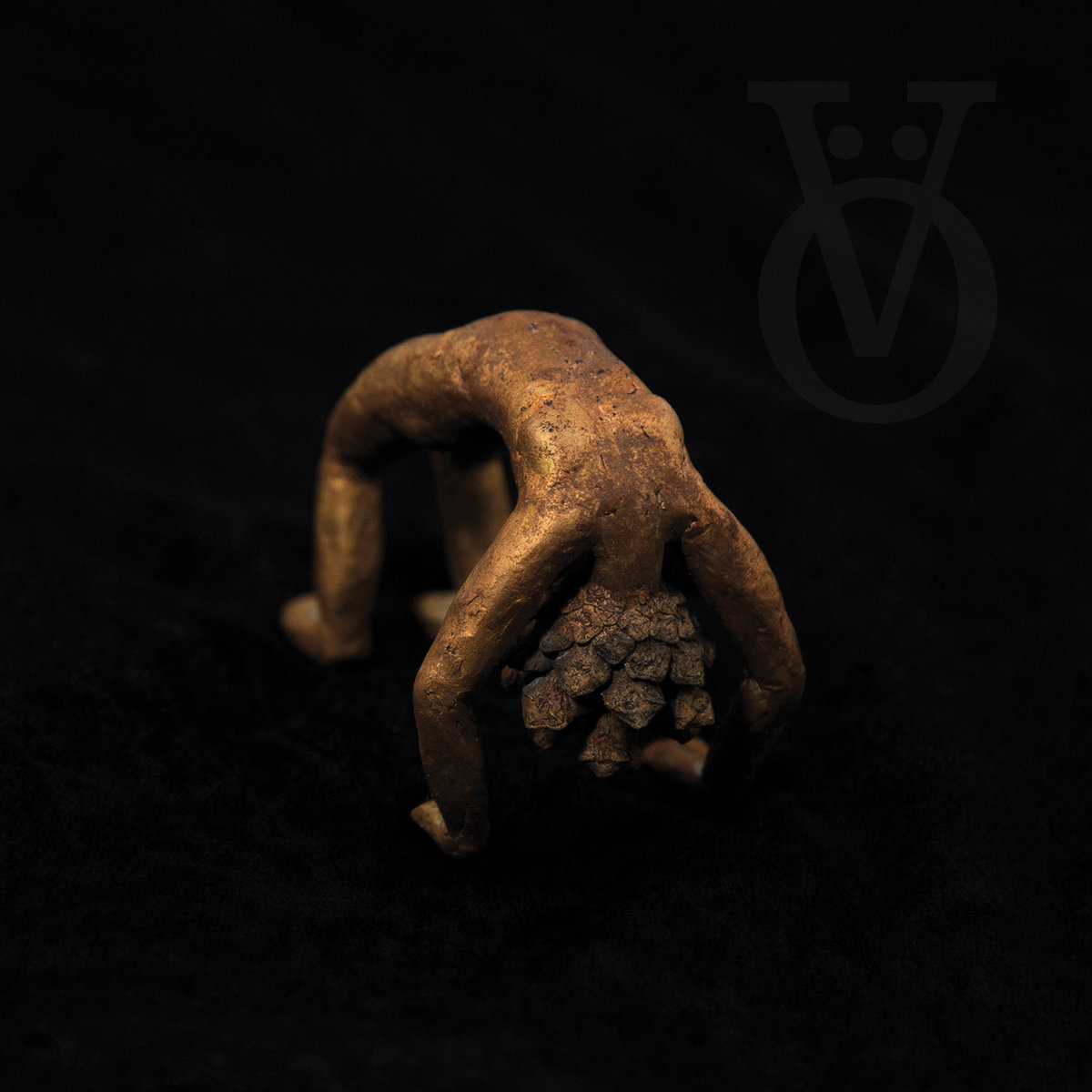Jüngst erschien das Debütalbum des neuen Improv-Sextetts mit dem Namen VÖ auf Thanatosis Produktion. Die aus Eva Lindal (Violine), Anna Högberg (Altsaxofon), Johan Berthling (Kontrabass), Leo Svensson Sander (Cello), Alex Zethson (Piano, Harmonium) und Giannis Arapis (Akustikgitarre) bestehende Gruppe wurde im vorigen Jahr von Zethsen für eine eintägige Session in Stockholm zusammengetrommelt und improvisierte ohne konkretere Pläne und Instruktionen. Das Resultat ist eine über weite Strecken meditative Musik, die an zahlreiche Folktraditionen erinnert und doch mehr das Ergebnis spontaner Interaktion ist. Das Album erscheint als Doppel-CD und zum Download.
“From the opening seconds it’s clear that the debut recording of the improvising sextet VÖ is not just another free improv session. The deeply meditative sounds may conjure disparate folk traditions from around the globe, whether Scandinavian fiddle tunes or the way Alex Zethson’s meandering pump organ evokes the exploratory harmonium lines in Pakistani qawwali music, but these associations are mostly coincidental. The ensemble members are devoted to improvised and experimental music mostly as an operating procedure. The sound seeking they engage in together ends up suggesting all sorts of traditions and approaches as a byproduct of spontaneous interplay, but there was no map guiding them. The places they take the listener are often unexpected, rewarding us with ravishing warmth, tenderness, and a powerful ambiguity. What exactly is this music?
Zethson assembled the sextet for a day-long session at Daniel Bengtson’s homey Studio Rymden in Stockholm in late March of 2021. The Greek guitarist Giannis Arapis was in town to work with another ensemble led by the keyboardist, who decided to take advantage of his presence with this first-time grouping—although many of the musicians have worked together in disparate contexts over the years. All of the music was created spontaneously with very little discussion beforehand, although Zethson did play the core of “Landsort 1916,” a theme he originally wrote for the 1917 silent film Terje Vigen, with the others improvising upon its form. None of them had ever heard it before the tape started rolling. The recordings illustrate the rapport these players immediately felt. Most of the album’s first disc features a quintet with Arapis, Zethson, double bassist Johan Berthling, cellist Leo Svensson Sander, and violinist Eva Lindal—saxophonist Anna Högberg, who was only able to spend a bit more than an hour in the studio, plays on many of the shorter, smaller group pieces, as well as the lone sextet piece on the first disc, the mournful “Let whatever is sounded be returned to the ground”. The probing quality of those pieces, which each participant exploring a lush, rustic sound field that often feels eternal in its stark beauty, is balanced by a powerfully unified execution.
There was no guidepost for a piece like “Epiphanies,” the opening track, but the way the musicians build the piece from see-sawing pulse-like guitar plucks into an expansive rumination with swelling, cycling arco violin, cello, and bass swelling and cycling through Zethson’s lyric rumination suggests otherwise. It sets a tone for what follows, with the ensemble engaging in shifting dialogues where there are no questions or answers. Instead, they come together wordlessly for the sheer sake of community, as each gesture builds upon a previous utterance or pushes the group in a subtle, new direction. On “Discordia Harmonia” the guitar and bass glide through a knotty tangle of levitating sound on top of fluttering pump organ figures. Even when the violin and cello enter, they contribute to a kind of floating holding pattern, building up tension for more than three exquisite minutes before the organ suddenly switches into a more propulsive mode. As with most of the pieces, there’s no predictable resolution, but the piece fades into silence, as if some naturally occurring phenomenon that we’re lucky enough drink for a few minutes as we pass by.” (Thanatosis)
